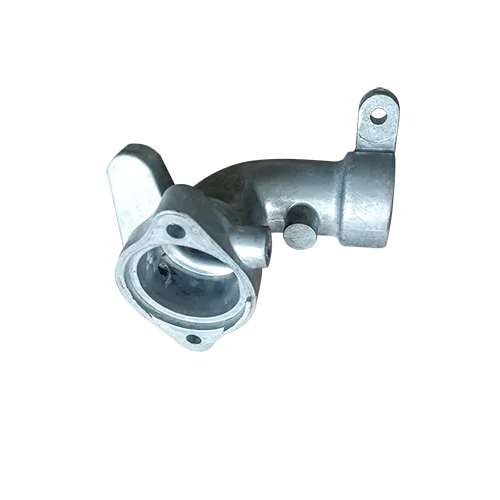Mobile:+86-311-808-126-83
Email:info@ydcastings.com
impeller types
Understanding Impeller Types A Comprehensive Guide
Impellers are vital components in various mechanical systems, particularly in pumps, turbines, and compressors. Their primary function is to enhance the movement of fluids by converting rotational energy into kinetic energy. Depending on the application, different types of impellers are utilized, with each design offering unique advantages and capabilities. This article explores the various types of impellers, their characteristics, and their practical applications.
1. Open Impellers
Open impellers are characterized by their simplicity, featuring blades that are not enclosed by a shroud. This design allows for effective handling of fluids containing solid particles. Open impellers are typically found in applications where high flow rates are necessary and where the risk of clogging is present, such as in sewage and wastewater treatment plants. One of the main advantages of this type is its ease of maintenance; however, its efficiency can be lower compared to other designs, especially at high speeds.
2. Closed Impellers
Closed impellers feature blades that are encapsulated by a shroud on both the inlet and outlet sides. This design significantly improves the efficiency of fluid movement and reduces turbulence, making closed impellers suitable for high-pressure applications. They are commonly used in centrifugal pumps where stable and consistent flow is required. The enclosed structure also protects the blades from wear and damage, extending the life of the impeller. However, these impellers are less effective in handling fluids with high solid content due to the risk of clogging.
3
. Semi-Closed ImpellersAs the name suggests, semi-closed impellers combine elements from both open and closed designs. They feature a shroud on the outlet side but are open on the inlet side. This design strikes a balance between the efficiency of closed impellers and the versatility of open impellers. Semi-closed impellers are ideal for applications where moderate efficiency is needed along with the ability to handle some solids. They find common use in agricultural and industrial applications.
impeller types

4. Vortex Impellers
Vortex impellers are specifically designed to handle fluids with high solid content and are often found in applications involving slurries. The unique design creates a vortex motion, allowing solids to flow around the blades without causing blockages. This makes vortex impellers particularly valuable in wastewater treatment facilities and applications involving thick, viscous substances. While they excel at handling solids, vortex impellers may not provide the same level of efficiency in clear fluid applications.
5. Mixed Flow Impellers
Mixed flow impellers combine features of both axial and centrifugal impellers. They facilitate fluid movement both radially and axially, making them highly versatile. This design is particularly useful in applications requiring a balance between flow rate and pressure generation. Mixed flow impellers are commonly used in medium to high flow applications, such as in certain types of pumps and fans. Their adaptability allows them to perform efficiently across a range of operating conditions.
6. Axial Flow Impellers
Axial flow impellers work primarily by pushing fluid along the axis of the impeller. This type of impeller is known for high flow rates and is typically used in applications where low pressure but high volume is required. Examples include propellers in boats and certain fan designs. Axial flow impellers are ideal for mixing and aeration processes in chemical industries and wastewater treatment, where it is crucial to maintain good fluid movement without generating excessive pressure.
Conclusion
Choosing the right type of impeller for a specific application is critical for ensuring optimal performance and efficiency. Understanding the unique characteristics and benefits of each impeller type can aid in making informed decisions for engineers and operators alike. Whether it's managing wastewater, fueling industrial processes, or propelling marine vessels, the diverse range of impellers available demonstrates their fundamental role in fluid dynamics and process engineering. As technology progresses, innovations in impeller design continue to enhance their functionality and adaptability across various industries.
-
Why Should You Invest in Superior Pump Castings for Your Equipment?NewsJun.09,2025
-
Unlock Performance Potential with Stainless Impellers and Aluminum End CapsNewsJun.09,2025
-
Revolutionize Your Machinery with Superior Cast Iron and Aluminum ComponentsNewsJun.09,2025
-
Revolutionize Fluid Dynamics with Premium Pump ComponentsNewsJun.09,2025
-
Optimizing Industrial Systems with Essential Valve ComponentsNewsJun.09,2025
-
Elevate Grid Efficiency with High-Precision Power CastingsNewsJun.09,2025











